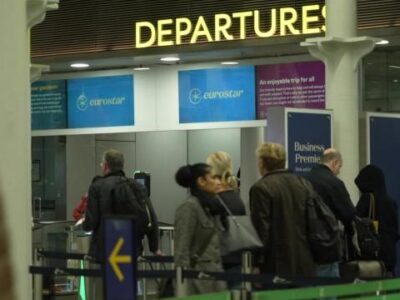The British government said the coronavirus pandemic has highlighted a range of staff shortages within the social care sector, placing pressure on the existing workforce.
Foreign social care workers, care assistants and home care workers, including those from India, will soon be eligible for a UK Health and Care Visa for a 12-month period as part of temporary measures to meet shortages in the sector.
The UK government said on Friday that thousands of additional care workers could be recruited to boost the adult social care workforce following temporary changes to the scheme, which will make it quicker, cheaper and easier for social care employers to recruit eligible workers to fill vital gaps.
These workers cover work in government-backed care homes and also care assistance for the elderly and disabled in their own homes.
“The care sector is experiencing unprecedented challenges prompted by the pandemic and the changes we’ve made to the health and care visa will bolster the workforce and help alleviate some of the pressures currently being experienced,” Home Secretary Priti Patel said.
“This is our New Plan for Immigration in action, delivering our commitment to support the NHS and the wider health and care sector by making it easier for health professionals to live and work in the UK,” she said.
The change follows a recommendation from the UK’s Migration Advisory Committee (MAC) to make care workers and home carers eligible for the Health and Care Visa and add the occupation to the Shortage Occupation List (SOL). Inclusion on the SOL stipulates an annual salary minimum of GBP 20,480 for carers to qualify for the Health and Care Visa.
The British government said the coronavirus pandemic has highlighted a range of staff shortages within the social care sector, placing pressure on the existing workforce. The temporary measures announced this week are expected to come into effect early next year and will be in place for a minimum of 12 months, providing a staffing boost while the sector deals with the additional pressures of the pandemic and will be reviewed after the minimum period.
“It is vital we continue to do all we can to protect the social care sector during the pandemic and beyond,” Health Secretary Sajid Javid said.
“These measures, together with the series of support packages announced since September, will help us ensure short term sustainability and success for our long-term vision to build social care back better,” he said.
Since Brexit, social care workers from European Union (EU) countries are no longer automatically eligible to work in the UK and instead have to apply for a visa like other countries.
The Department of Health and Social Care (DHSC) said care providers who do not already hold a sponsor licence in the Skilled Worker route can register for a sponsorship license ahead of implementation early next year. Providers who are new to visa sponsorship will be supported the process through a series of engagement activities in January and February, to introduce them to the system and find out how to act as a visa sponsor.
Care workers and carers recruited to the UK will be able to bring their dependents, including partners and children, with the Health and Care Visa offering a pathway to settlement should they remain employed and wish to remain in the UK.
“We recognise the challenges the workforce has faced, with the ever-growing demand for services combined with the pandemic and existing staff shortages. This change will support getting more people into care as we implement our long-term strategy for a fair and sustainable care sector that meets the needs of everyone,” Care Minister Gillian Keegan said.
![]()






